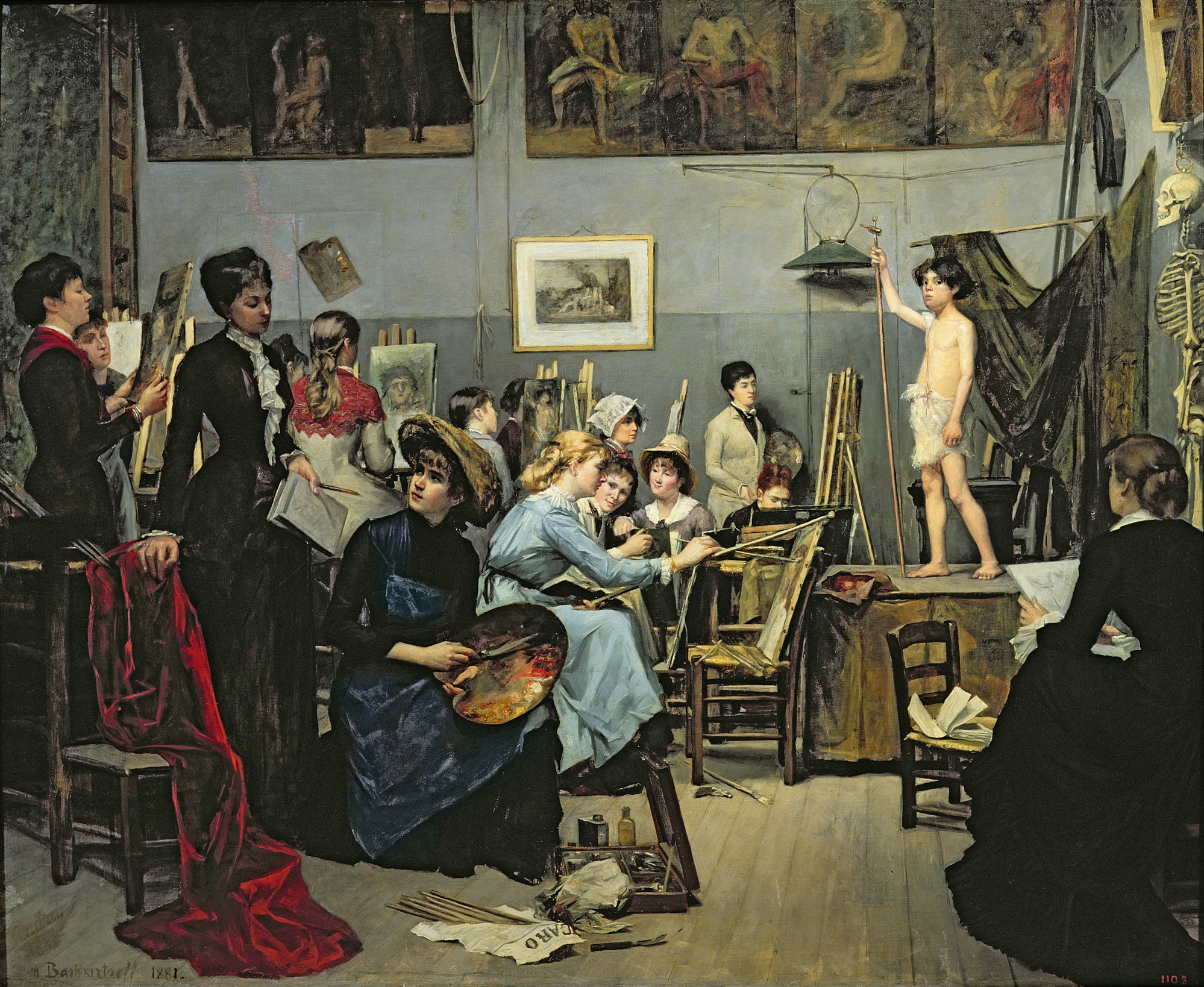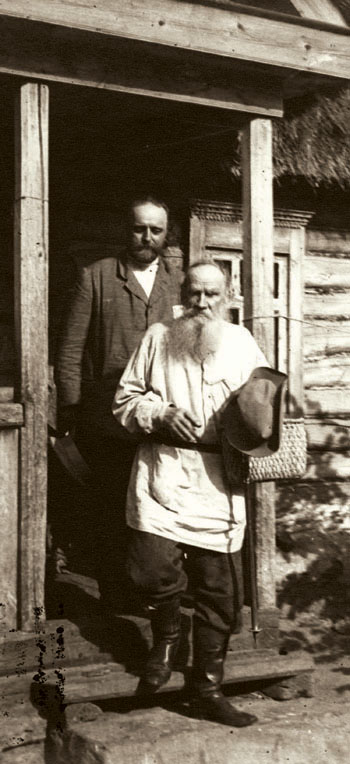|
Mikhail Protopopov
Mikhail Alexeyevich Protopopov (russian: Михаил Алексеевич Протопопов; 1848, Kostroma, Imperial Russia – 16 December 1915) was a Russian Empire journalist, publicist and literary critic. An ardent narodnik, influenced by the ideas of Nikolai Mikhaylovsky and Pyotr Lavrov, Protopopov started late but instantly gained notoriety for his sharp, emotional and opinionated reviews, writing mostly for ''Otechestvennye Zapiski'', but also ''Russkaya Pravda'', ''Slovo'', ''Russkoye Bogatstvo'' and ''Delo''. After the closure of several radical journals in 1884, Protopopov was arrested and after six months' detention deported to Chukhloma where he lived under close police supervision. After receiving permission to settle in Saint Petersburg, he became one of the leading authors of liberal, narodnik-oriented '' Russkaya Mysl''. Protopopov, who considered himself a follower of Chernyshevsky, Dobrolyubov and Pisarev, thought little about objectivity, ignored the ae ... [...More Info...] [...Related Items...] OR: [Wikipedia] [Google] [Baidu] |
Kostroma
Kostroma ( rus, Кострома́, p=kəstrɐˈma) is a historic city and the administrative center of Kostroma Oblast, Russia. A part of the Golden Ring of Russian cities, it is located at the confluence of the rivers Volga and Kostroma. Population: History Under the Rurikids The official founding year of the city is 1152 by Yury Dolgoruky.Official website of KostromaKostroma Today/ref> Since many scholars believe that early Eastern Slavs tribes arrived in modern-day Belarus, Ukraine and western Russia AD 400 to 600, Kostroma could be much older than previously thought. The city has the same name as the East Slavic goddess Kostroma. Like other towns of the Eastern Rus, Kostroma was sacked by the Mongols in 1238. It then constituted a small principality, under leadership of Prince Vasily of Kostroma, a younger brother of the famous Alexander Nevsky. Upon inheriting the grand ducal title in 1271, Vasily didn't leave the town for Vladimir, and his descendants ruled Kostr ... [...More Info...] [...Related Items...] OR: [Wikipedia] [Google] [Baidu] |
Dmitry Pisarev
Dmitry Ivanovich Pisarevrussian: Дми́трий Ива́нович Пи́сарев ( – ) was a Russian literary critic and philosopher who was a central figure of Russian nihilism. He is noted as a forerunner of Nietzschean philosophy and for the impact his advocacy of liberation movements and natural science had on Russian history. A critique of his philosophy became the subject of Fyodor Dostoevsky's celebrated novel ''Crime and Punishment''. Indeed, Pisarev's philosophy embraces the nihilist aims of negation and value-destruction; in freeing oneself from all human and moral authority, the nihilist becomes ennobled above the common masses and free to act according to sheer personal preference and usefulness. These ''new types'', as Pisarev termed them, were to be pioneers of what he saw as the most necessary step for human development, namely the reset and destruction of the existing mode of thought. Among his most famous locutions is: "What can be smashed must be s ... [...More Info...] [...Related Items...] OR: [Wikipedia] [Google] [Baidu] |
Literary Critics From The Russian Empire
Literature is any collection of written work, but it is also used more narrowly for writings specifically considered to be an art form, especially prose fiction, drama, and poetry. In recent centuries, the definition has expanded to include oral literature, much of which has been transcribed. Literature is a method of recording, preserving, and transmitting knowledge and entertainment, and can also have a social, psychological, spiritual, or political role. Literature, as an art form, can also include works in various non-fiction genres, such as biography, diaries, memoir, letters, and the essay. Within its broad definition, literature includes non-fictional books, articles or other printed information on a particular subject.''OED'' Etymologically, the term derives from Latin ''literatura/litteratura'' "learning, a writing, grammar," originally "writing formed with letters," from ''litera/littera'' "letter". In spite of this, the term has also been applied to spoken or ... [...More Info...] [...Related Items...] OR: [Wikipedia] [Google] [Baidu] |
Brockhaus And Efron Encyclopedic Dictionary
The ''Brockhaus and Efron Encyclopaedic Dictionary'' ( Russian: Энциклопедический словарь Брокгауза и Ефрона, abbr. ЭСБЕ, tr. ; 35 volumes, small; 86 volumes, large) is a comprehensive multi-volume encyclopaedia in Russian. It contains 121,240 articles, 7,800 images, and 235 maps. It was published in Imperial Russia in 1890–1907, as a joint venture of Leipzig and St Petersburg publishers. The articles were written by the prominent Russian scholars of the period, such as Dmitri Mendeleev and Vladimir Solovyov. Reprints have appeared following the dissolution of the Soviet Union. History In 1889, the owner of one of the St. Petersburg printing houses, Ilya Abramovich Efron, at the initiative of Semyon Afanasyevich Vengerov, entered into an agreement with the German publishing house F. A. Brockhaus for the translation into Russian of the large German encyclopaedic dictionary ( de) into Russian as , published by the same publis ... [...More Info...] [...Related Items...] OR: [Wikipedia] [Google] [Baidu] |
Vasily Rozanov
Vasily Vasilievich Rozanov (russian: Васи́лий Васи́льевич Рóзанов; – 5 February 1919) was one of the most controversial Russian writers and important philosophers in the symbolists' of the pre- revolutionary epoch. Views Rozanov tried to reconcile Christian teachings with ideas of healthy sex and family life, though as his adversary Nikolai Berdyaev put it, "to set up sex in opposition to the Word". His interest in these matters, as in matters of religion, brought Rozanov close to Russian Symbolism. Because of references to the phallus in Rozanov's writings, Klaus von Beyme called him the Rasputin of the Russian intelligentsia. Rozanov's mature works are personal diaries containing intimate thoughts, impromptu lines, unfinished maxims, vivid aphorisms, reminiscences, and short essays. These works, in which he thus attempted to recreate the intonations of speech, form a loosely connected trilogy, comprising ''Solitaria'' (1911) and the two ... [...More Info...] [...Related Items...] OR: [Wikipedia] [Google] [Baidu] |
Ignaty Potapenko
Ignaty Nikolayevich Potapenko (russian: Игна́тий Никола́евич Пота́пенко, December 30, 1856 – May 17, 1929), was a Russian writer and playwright. Biography Potapenko was born in the village of Fyodorovka, Kherson Governorate, Russian Empire (now Ukraine) where his father was a priest. Potapenko studied at Odessa University, and at the Saint Petersburg Conservatory. His first works were tales of Ukrainian life. He's best known for his novel ''A Russian Priest (1890)'', published in ''Vestnik Evropy ''Vestnik Evropy'' (russian: Вестник Европы) (''Herald of Europe'' or ''Messenger of Europe'') was the major liberal magazine of late-nineteenth-century Russia. It was published from 1866 to 1918. The magazine (named for an earlier ... (Herald of Europe)''. His works include novels, plays, and short stories.''The Great Soviet Encyclopedia'', 3rd Edition (1970-1979). 2010, The Gale Group, Inc. English translations *''The General's Daug ... [...More Info...] [...Related Items...] OR: [Wikipedia] [Google] [Baidu] |
Akim Volynsky
Akim Lvovich Volynsky (Аким Львович Волынский, real name Khaim Leybovich Flekser, Хаим Лейбович Флексер; 3 May 1861 – 6 July 1926) was a Russian literary (later theatre and ballet) critic and historian, one of the early ideologists of the Russian Modernism. Early life Born into a Jewish family, his identity would play a role in his future artistic endeavors. Career Volynsky came to prominence in 1890—1895 with a series of essays published by '' Severny Vestnik'' of which he later became the co-editor. His 1896 book ''Russian Critics'' which targeted figures like Nikolai Chernyshevsky and Nikolai Dobrolyubov, later in its turn evoked Georgy Plekhanov's scathing criticism. It was followed by another seminal compilation, ''Fighting for Idealism'' (Борьба за идеализм, 1900). Among Akim Volynsky's notable books were ''Leonardo da Vinchi'' (1900) and ''F.M. Dostoyevsky'' (1906); the former drew accusations of plagiarism, as V ... [...More Info...] [...Related Items...] OR: [Wikipedia] [Google] [Baidu] |
Pavel Zasodimsky
Pavel Vladimirovich Zasodimsky (russian: Павел Владимирович Засодимский, born 13 November 1834, Veliky Ustyug, Vologda Governorate. Russian Empire, — died 17 May 1912, Opechensky Posad, Novgorod Governorate, Russian Empire) was a Russian writer, close to the Narodnik movement and Narodnaya Volya group. He was also known under his pen name Vologdin (Вологдин).Pavel Zasodimsky Biography at the . 1890—1907. Writing mostly about the life of Russian lower classes, Zasodimsky contributed regularly to the leading Russian magazines, including '' [...More Info...] [...Related Items...] OR: [Wikipedia] [Google] [Baidu] |
Anton Chekhov
Anton Pavlovich Chekhov (; 29 January 1860Old Style date 17 January. – 15 July 1904Old Style date 2 July.) was a Russian playwright and short-story writer who is considered to be one of the greatest writers of all time. His career as a playwright produced four classics, and his best short stories are held in high esteem by writers and critics."Stories ... which are among the supreme achievements in prose narrative.Vodka miniatures, belching and angry cats George Steiner's review of ''The Undiscovered Chekhov'', in ''The Observer'', 13 May 2001. Retrieved 16 February 2007. Along with Henrik Ibsen and August Strindberg, Chekhov is often referred to as one of the three seminal figures in the birth of early modernism in the theatre. Chekhov was a physician by profession. "Medicine is my lawful wife", he once said, "and literature is my mistress." Chekhov renounced the theatre after the reception of ''The Seagull'' in 1896, but the play was revived to acclaim in 18 ... [...More Info...] [...Related Items...] OR: [Wikipedia] [Google] [Baidu] |
Maria Bashkirtseva
Marie Bashkirtseff (born Mariya Konstantinovna Bashkirtseva, russian: Мария Константиновна Башки́рцева; 1858–1884) was a Ukrainian artist from the Russian Empire who worked in Paris, France. She died aged 25. Life and painting career Bashkirtseff was born Maria Konstantinovna Bashkirtseva in Gavrontsi near Poltava, Russian Empire (now Ukraine) to a wealthy noble family. Her father was a local Marshal of Nobility Konstantin Pavlovich Bashkirtsev. Her mother Maria Stepanovna Babanina (1833—1920) also belonged to Russian nobles. Her parents separated when she was 12. As a result, she grew up mostly abroad, traveling with her mother throughout most of Europe, with longer spells in Germany and on the Riviera, until the family settled in Paris. Educated privately and with early musical talent, she lost her chance at a career as a singer when illness destroyed her voice. She then determined to become an artist, and she studied painting in France ... [...More Info...] [...Related Items...] OR: [Wikipedia] [Google] [Baidu] |
Fyodor Dostoyevsky
Fyodor Mikhailovich Dostoevsky (, ; rus, Фёдор Михайлович Достоевский, Fyódor Mikháylovich Dostoyévskiy, p=ˈfʲɵdər mʲɪˈxajləvʲɪdʑ dəstɐˈjefskʲɪj, a=ru-Dostoevsky.ogg, links=yes; 11 November 18219 February 1881), sometimes transliterated as Dostoyevsky, was a Russian novelist, short story writer, essayist and journalist. Dostoevsky's literary works explore the human condition in the troubled political, social, and spiritual atmospheres of 19th-century Russia, and engage with a variety of philosophical and religious themes. His most acclaimed novels include ''Crime and Punishment'' (1866), ''The Idiot'' (1869), ''Demons'' (1872), and '' The Brothers Karamazov'' (1880). His 1864 novella, '' Notes from Underground'', is considered to be one of the first works of existentialist literature. Numerous literary critics regard him as one of the greatest novelists in all of world literature, as many of his works are considered highly influe ... [...More Info...] [...Related Items...] OR: [Wikipedia] [Google] [Baidu] |
Tolstoyism
The Tolstoyan movement is a social movement based on the philosophical and religious views of Russian novelist Leo Tolstoy (1828–1910). Tolstoy's views were formed by rigorous study of the ministry of Jesus, particularly the Sermon on the Mount. Tolstoy expressed "great joy" that groups of people "have been springing up, not only in Russia but in various parts of Europe, who are in complete agreement with our views." However, the author also thought it was a mistake to create a specific movement or doctrine after him, urging individuals to listen to their own conscience rather than blindly follow his. In regard to a letter he received from an adherent, he wrote: Beliefs and practices Tolstoyans ( Russian:''Толстовцы'', ''Tolstovtsy'') identify themselves as Christians, but do not generally belong to an institutional Church. Tolstoy was a harsh critic of the Russian Orthodox Church, leading to his excommunication in 1901. Tolstoyans tend to focus more on fol ... [...More Info...] [...Related Items...] OR: [Wikipedia] [Google] [Baidu] |





